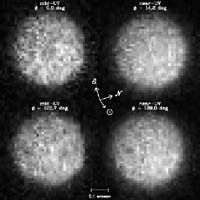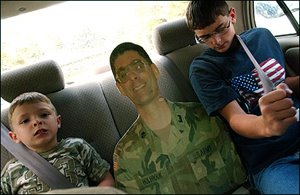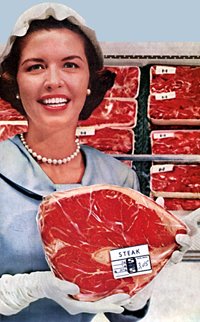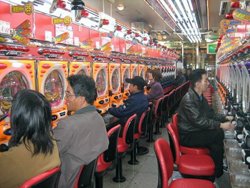
The week’s biggest story, surpassing even a revival of the Jon Benet Ramsey murder, was of course the demotion of Pluto from the exalted ranks of planetary status.
Personally I feel that a true definition of planets should only include four – Neptune (the smallest), Uranus, Saturn and Jupiter.
Seriously, it’s a major step down from
Neptune to the next largest mote of rock orbiting the sun, which would be Earth – less than 1/17
th the mass of
Neptune.
But if we insist on such a geocentric mode of looking at our solar system, allowing our humble home-rock to be lumped into the same category of object as Jupiter (100 times the mass of Earth and with 62 moons so far discovered, only 38 of which have been named), we will of course end up with absurdities such as whether or not a slightly smaller lump of stones (Pluto is actually a quadrinary system of four rocks orbiting each other) is also a planet.
But what the whole event reminds me of is my fascination as a younger lad with the earlier planetary battle that took place back in the 19th century. (As both of my parents are astronomers, my youthful fascinations tended towards the astronomically geeky). As a kid my favorite solar system object was Ceres, which had the honor of being considered a planet for over 50 years, before it, too, got unceremoniously booted from the club.
Ceres was discovered in 1801, by Giuseppe Piazzi, and it was assumed to be the ‘missing’ planet that the Titius-Bode law said should exist between the orbits of Mars and Jupiter. It was deemed to be a planet, given a planetary symbol and remained so even after the discovery of Pallas, Juno and Vesta – the next three objects discovered that would ultimately deemed to be asteroids.
In 1828, the book, ‘First Steps to Astronomy and Geography’, lists the planets as "Eleven: Mercury, Venus, the Earth, Mars, Vesta, Juno, Ceres, Pallas, Jupiter, Saturn, and Herschel." Herschel was the name used for Uranus for several years after the Astronomer Hershel discovered the planet.
This remained until 1847 when a whole slew of new asteroids was discovered, bringing the number up to 15. Still, even until the 1850s, by which point the number of known asteroids rose past 100, the first 4 asteroids discovered were referred to as planets, avoiding the term ‘minor planets’ until different national astronomical journals slowly adopted the new terminology. Ceres and the other three were viewed as both planets and asteroids until the time of the American Civil War. Unlike with Pluto their status changed not with a bang, but a whimper.
I always felt more affinity for a tiny rock like Ceres than Pluto, as it is much closer to our own tiny rock.
It always seemed more accessible and more exotic to me, especially since no one paid any attention to it in our science classes.
It was sort of like having your own planet nearby that no one else was aware of
Pretty pathetic, huh?
On June 20, 2007, NASA hopefully launches the Dawn Mission, a probe that will visit two of these former planets, Vesta in 2011, and Ceres in 2015.






